What if your truck could not only tow a house but also think for itself? As we barrel into 2025, the world of trucks is no longer just about raw power—it’s about brains, brawn, and a dash of futuristic flair. Towing capacity has always been the holy grail for truck enthusiasts, but now, with advancements in gas, diesel, and electric powertrains, coupled with AI-driven innovations, the game has changed. Whether you’re hauling a boat to the lake, a trailer across the country, or heavy equipment for work, the right truck can make all the difference. This article is your ultimate guide to the best trucks for towing capacity in 2025, ranked by specs, and packed with insights to help you make the smartest choice.
Renowned automotive journalist Edmunds has long championed the importance of towing capacity, calling it the “unsung hero of truck performance.” Meanwhile, Elon Musk has pushed the envelope with electric trucks like the Tesla Cybertruck, proving that sustainability and power can coexist. And let’s not forget Ford’s legacy of innovation, with their F-Series trucks dominating the towing scene for decades. As we explore the top trucks of 2025, we’ll dive into the nitty-gritty of what makes these machines tick—and why they’re worth your hard-earned cash.
Top Trucks Ranked by Towing Specs
Heavy-Duty Champions
When it comes to heavy-duty towing, the Ford F-450 Super Duty, Ram 3500, and Chevrolet Silverado 3500 are the undisputed kings of the road. These beasts can tow over 30,000 lbs, thanks to their reinforced frames, advanced braking systems, and monstrous engines. The Ford F-450, for instance, boasts a towing capacity of up to 37,000 lbs, making it the go-to choice for hauling massive loads. Meanwhile, the Ram 3500’s Cummins turbo diesel engine delivers unmatched torque, ensuring smooth towing even on steep inclines. And let’s not forget the Silverado 3500, which combines brute strength with cutting-edge tech like adaptive cruise control and trailer sway control. If you’re looking to tow a small mountain, these trucks have you covered.
Mid-Range Powerhouses
Not everyone needs a heavy-duty truck, and that’s where mid-range powerhouses like the Ford F-150, Ram 1500, and GMC Sierra 1500 come in. These trucks offer towing capacities between 10,000 and 15,000 lbs, making them perfect for hauling boats, campers, or construction equipment. The Ford F-150, for example, features a high-strength aluminum body that reduces weight without sacrificing durability, while the Ram 1500’s eTorque mild hybrid system improves fuel efficiency during towing. The GMC Sierra 1500, on the other hand, offers a carbon fiber bed and a MultiPro tailgate, adding both style and functionality. These trucks prove that you don’t need to go big to go strong.
Electric Contenders
The future of towing is electric, and trucks like the Tesla Cybertruck and Rivian R1T are leading the charge. With towing capacities of up to 14,000 lbs, these electric trucks are no slouches when it comes to hauling. The Cybertruck’s stainless steel exoskeleton and tri-motor setup deliver instant torque, making it a force to be reckoned with. Meanwhile, the Rivian R1T combines off-road capability with eco-friendly performance, thanks to its quad-motor system and regenerative braking. While electric trucks still face challenges like limited range when towing and charging infrastructure, they’re quickly proving that they’re more than just a novelty. If you’re ready to embrace the future, these electric contenders are worth a closer look.
Gas vs Diesel vs Electric Towing Power
When it comes to towing, the type of engine under the hood can make or break your experience. Let’s break down the pros and cons of gas, diesel, and electric powertrains to help you decide which one suits your towing needs best.
Gas Engines
Gas engines are the classic choice for truck owners. They’re affordable upfront, and you’ll find gas stations on every corner, making them convenient for long hauls. However, they tend to lag behind diesel in terms of torque and fuel efficiency, especially when pulling heavy loads. Think of it like trying to tow a boat with a sedan—it’ll get the job done, but it’s not exactly a smooth ride.
Diesel Engines
Diesel engines are the workhorses of the towing world. With their superior torque and better fuel efficiency, they’re perfect for heavy-duty tasks. But, like a high-maintenance celebrity, they come with a higher upfront cost and steeper maintenance bills. If you’re planning to tow frequently or haul massive loads, though, diesel is worth the investment. It’s like having a personal trainer for your truck—tough but effective.
Electric Powertrains
Electric trucks are the new kids on the block, and they’re making waves with their instant torque and zero emissions. Models like the Tesla Cybertruck and Rivian R1T are proving that electric vehicles can handle towing with ease. The catch? Range anxiety. Towing heavy loads can drain the battery faster than a teenager’s phone. Plus, charging infrastructure is still catching up. But if you’re eco-conscious and don’t mind planning your trips around charging stations, electric could be the future of towing.
Towing Capacity vs Payload Trade-offs
Understanding the difference between towing capacity and payload is crucial for any truck owner. It’s like knowing the difference between a marathon and a sprint—both require strength, but in different ways.
Understanding Payload
Payload refers to the weight your truck can carry in its bed and cabin. This includes passengers, cargo, and any accessories like toolboxes or bed liners. Think of it as the truck’s ability to carry a backpack while running. Exceeding the payload limit can strain the suspension and reduce handling, making your truck feel like it’s running in quicksand.
Balancing Towing and Payload
Towing capacity and payload are like siblings—they’re related but don’t always get along. If you’re towing a heavy trailer, you’ll need to account for the weight of the hitch and any additional cargo in the truck. A weight distribution hitch can help balance the load, but it’s not a magic fix. Always check your truck’s manual to ensure you’re not overloading it. It’s like packing for a road trip—you can’t bring everything, so prioritize what’s essential.
Real-World Examples
Take the Ford F-150, for example. It’s a master of balance, offering impressive towing capacity without sacrificing payload. On the other hand, the Ram 3500 is a heavyweight champion, designed for maximum towing but with a payload that’s equally robust. These trucks show that with the right engineering, you can have the best of both worlds.
Best Value Picks by Price Range
When it comes to finding the best truck for towing, your budget plays a huge role. Whether you’re looking for a budget-friendly workhorse or a premium powerhouse, there’s a truck out there for you. Let’s break down the best options across different price ranges.
Budget-Friendly Options
If you’re working with a tighter budget, there are still plenty of trucks that offer solid towing capabilities without breaking the bank. The Toyota Tundra and Nissan Titan are excellent choices. Both trucks offer towing capacities of around 9,000 to 10,000 lbs, making them perfect for hauling smaller trailers or boats. They also come with reliable engines and durable frames, ensuring they can handle the demands of towing without compromising on performance.
- Toyota Tundra: Known for its reliability and strong V8 engine, the Tundra is a great option for those who need a dependable truck for occasional towing.
- Nissan Titan: With a comfortable ride and robust towing capabilities, the Titan is a solid choice for budget-conscious buyers.
Mid-Range Excellence
For those willing to spend a bit more, mid-range trucks like the Ford F-150 and Ram 1500 offer a perfect balance of performance and affordability. These trucks boast towing capacities of up to 13,000 lbs, making them ideal for heavier loads. They also come packed with advanced features like adaptive cruise control, trailer sway control, and integrated brake controllers, which make towing safer and more convenient.
- Ford F-150: A perennial favorite, the F-150 offers a range of engine options, including a powerful EcoBoost V6, and a host of towing-specific features.
- Ram 1500: Known for its luxurious interior and smooth ride, the Ram 1500 also delivers impressive towing performance.
Premium Powerhouses
If money is no object and you need the absolute best in towing capacity, look no further than the Ford F-450 Super Duty and Ram 3500. These heavy-duty trucks are built to handle the toughest jobs, with towing capacities exceeding 30,000 lbs. They come equipped with reinforced frames, advanced braking systems, and powerful diesel engines that make towing heavy loads a breeze.
- Ford F-450 Super Duty: With its massive towing capacity and rugged build, the F-450 is the ultimate choice for serious haulers.
- Ram 3500: Offering a combination of power and luxury, the Ram 3500 is perfect for those who demand the best.
FAQs
Here are some of the most common questions people have about towing capacity and the best trucks for the job.
What is the best truck for towing in 2025?
The Ford F-450 Super Duty, Ram 3500, and Chevrolet Silverado 3500 are among the best trucks for towing in 2025, offering unmatched towing capacities and advanced features.
How does electric towing compare to gas and diesel?
Electric trucks like the Tesla Cybertruck and Rivian R1T offer instant torque and zero emissions, making them great for short to medium-distance towing. However, their range can be limited when hauling heavy loads, and charging infrastructure is still developing compared to gas and diesel.
What factors affect towing capacity?
Towing capacity is influenced by several factors, including engine power, transmission type, frame strength, and braking systems. Always check your truck’s manual or manufacturer’s website for specific towing capacity details.
Can I increase my truck’s towing capacity?
No, towing capacity is determined by the manufacturer and cannot be safely increased. Attempting to exceed your truck’s towing capacity can lead to serious safety issues and void your warranty.
What is the difference between towing capacity and payload?
Towing capacity refers to the weight a truck can pull, such as a trailer or boat, while payload is the weight it can carry in its bed and cabin. Both are important considerations when choosing a truck for hauling.
AI Solutions & Top Towing Tips
Artificial Intelligence (AI) is no longer just a buzzword; it’s a game-changer in the towing industry. From optimizing performance to predicting maintenance needs, AI is revolutionizing how we approach towing. Here’s how you can leverage AI to make your towing experience safer, more efficient, and future-ready.
AI-Driven Towing Optimization
AI can analyze driving conditions, weight distribution, and route planning to optimize towing performance. Systems like Tesla Autopilot and Ford Co-Pilot360 use real-time data to adjust driving parameters, ensuring smoother and safer towing. These systems can also suggest the best routes based on traffic, weather, and road conditions, reducing wear and tear on your vehicle.
Predictive Maintenance
AI systems can monitor your truck’s health and predict maintenance needs before they become critical. Companies like Caterpillar and GE Digital offer advanced telematics solutions that track engine performance, brake wear, and tire pressure. By analyzing this data, AI can alert you to potential issues, preventing costly breakdowns and extending the life of your truck.
Autonomous Towing
The future of towing lies in autonomous vehicles. Companies like Tesla and Rivian are already testing self-driving trucks that can handle towing tasks with minimal human intervention. These vehicles use a combination of AI, machine learning, and advanced sensors to navigate roads, avoid obstacles, and maintain safe distances from other vehicles. While fully autonomous towing is still in its infancy, the technology is rapidly advancing, promising a future where towing is safer and more efficient than ever.
Step-by-Step AI Integration
Here’s a detailed roadmap for integrating AI into your towing operations:
- Day 1: Install AI-powered telematics systems like Geotab or Verizon Connect to start collecting real-time data on your truck’s performance.
- Week 1: Train drivers on how to use AI tools and interpret the data provided by telematics systems. This includes understanding alerts, optimizing routes, and using predictive maintenance features.
- Month 1: Analyze the initial data collected by the telematics system. Look for patterns in engine performance, fuel efficiency, and brake wear. Use this information to make adjustments to your driving habits and maintenance schedule.
- Year 1: Implement predictive maintenance schedules based on the data collected. This will help you address potential issues before they become major problems, reducing downtime and repair costs.
- Year 2: Explore autonomous towing capabilities. While fully autonomous towing may not be widely available yet, you can start testing semi-autonomous features like lane-keeping assist and adaptive cruise control to improve safety and efficiency.
The Future of Towing: A New Era of Efficiency and Safety
As we look ahead to 2025, the towing industry is on the brink of a technological revolution. AI is not just a tool; it’s a transformative force that is reshaping how we think about towing. From optimizing performance to predicting maintenance needs, AI offers solutions that were once the stuff of science fiction. But the real game-changer is the potential for autonomous towing, which promises to make our roads safer and our lives easier.
Imagine a world where your truck can handle the heavy lifting, literally. Where AI systems monitor every aspect of your vehicle’s performance, ensuring that you’re always operating at peak efficiency. Where predictive maintenance alerts you to potential issues before they become costly problems. This is not a distant dream; it’s the reality we’re building today.
But with great power comes great responsibility. As we embrace these new technologies, we must also consider the ethical implications. How do we ensure that AI systems are safe and reliable? How do we protect the data they collect? These are questions that we must address as we move forward.
In the meantime, the best thing you can do is stay informed. Keep up with the latest advancements in AI and towing technology. Experiment with new tools and systems. And most importantly, always prioritize safety. Whether you’re towing a boat, a trailer, or heavy equipment, the right technology can make all the difference.
So, what’s next for you? Are you ready to embrace the future of towing? The road ahead is full of possibilities, and with the right tools and knowledge, you can navigate it with confidence. The future is here—let’s make the most of it.
FAQ
Q1: What is the best truck for towing in 2025?
The Ford F-450 Super Duty, Ram 3500, and Chevrolet Silverado 3500 are top contenders for heavy-duty towing. These trucks are built with reinforced frames, advanced braking systems, and powerful engines that can handle over 30,000 lbs. If you’re looking for something more affordable, the Ford F-150 and Ram 1500 are excellent mid-range options.
Q2: How does electric towing compare to gas and diesel?
Electric trucks like the Tesla Cybertruck and Rivian R1T offer instant torque and zero emissions, making them great for short to medium hauls. However, towing heavy loads can significantly reduce their range, and charging infrastructure is still catching up. Gas engines are cheaper upfront and widely available, while diesel engines provide superior torque and fuel efficiency for heavy towing but come with higher maintenance costs.
Q3: What factors affect towing capacity?
Towing capacity depends on several factors, including:
- Engine Power: More horsepower and torque mean better towing performance.
- Transmission: A robust transmission ensures smooth power delivery.
- Frame Strength: A reinforced frame can handle heavier loads.
- Braking Systems: Advanced brakes are essential for stopping heavy trailers safely.
Always check your truck’s owner’s manual for the manufacturer’s towing capacity guidelines.
Q4: Can I increase my truck’s towing capacity?
No, towing capacity is determined by the manufacturer and cannot be safely increased. Modifying your truck to exceed its rated capacity can lead to mechanical failures, accidents, and voided warranties. Instead, choose a truck that meets your towing needs from the start.
Q5: What is the difference between towing capacity and payload?
Towing capacity refers to the weight a truck can pull, such as a trailer or boat. Payload is the weight the truck can carry in its bed and cabin, including passengers, cargo, and accessories. For example, the GMC Sierra 1500 has a towing capacity of up to 13,400 lbs and a payload capacity of around 2,250 lbs. Balancing both is crucial for safe and efficient hauling.
Q6: How is AI improving towing performance?
AI is revolutionizing towing by:
- Optimizing Driving Conditions: AI analyzes road conditions, weather, and traffic to suggest the best routes.
- Predictive Maintenance: AI systems monitor your truck’s health and alert you to potential issues before they become problems.
- Autonomous Towing: Self-driving technologies are being developed to make towing safer and more efficient.
For example, Ford’s Co-Pilot360 system uses AI to enhance safety and performance.
Q7: What are the best budget-friendly trucks for towing?
If you’re on a budget, the Toyota Tundra and Nissan Titan offer solid towing capacities under $50,000. The Tundra can tow up to 10,200 lbs, while the Titan handles up to 9,310 lbs. Both are reliable options for light to medium towing needs.
Q8: What should I look for in a towing package?
A good towing package includes:
- Heavy-Duty Cooling Systems: Prevents overheating during long hauls.
- Upgraded Suspension: Improves stability and handling.
- Integrated Trailer Brake Controller: Ensures smooth braking for trailers.
- Weight Distribution Hitch: Balances the load for safer towing.
For example, the Ram 1500 offers an advanced towing package with these features.
Q9: How do I maintain my truck for towing?
Regular maintenance is key to keeping your truck in top towing condition. Here’s a quick checklist:
- Check Brakes: Ensure your brakes are in good condition.
- Inspect Tires: Look for wear and maintain proper tire pressure.
- Monitor Fluids: Regularly check oil, coolant, and transmission fluid levels.
- Service the Transmission: Follow the manufacturer’s maintenance schedule.
For more tips, visit iNthacity’s newsletter for expert advice.
Q10: What’s the future of towing technology?
The future of towing is bright, with advancements in:
- Electric Powertrains: More efficient and eco-friendly towing options.
- AI and Automation: Smarter, safer, and more efficient towing systems.
- Lightweight Materials: Stronger yet lighter materials to improve payload and towing capacity.
Stay updated on the latest trends by subscribing to iNthacity’s newsletter.
Wait! There's more...check out our gripping short story that continues the journey: The Clock is Ticking
Disclaimer: This article may contain affiliate links. If you click on these links and make a purchase, we may receive a commission at no additional cost to you. Our recommendations and reviews are always independent and objective, aiming to provide you with the best information and resources.
Get Exclusive Stories, Photos, Art & Offers - Subscribe Today!
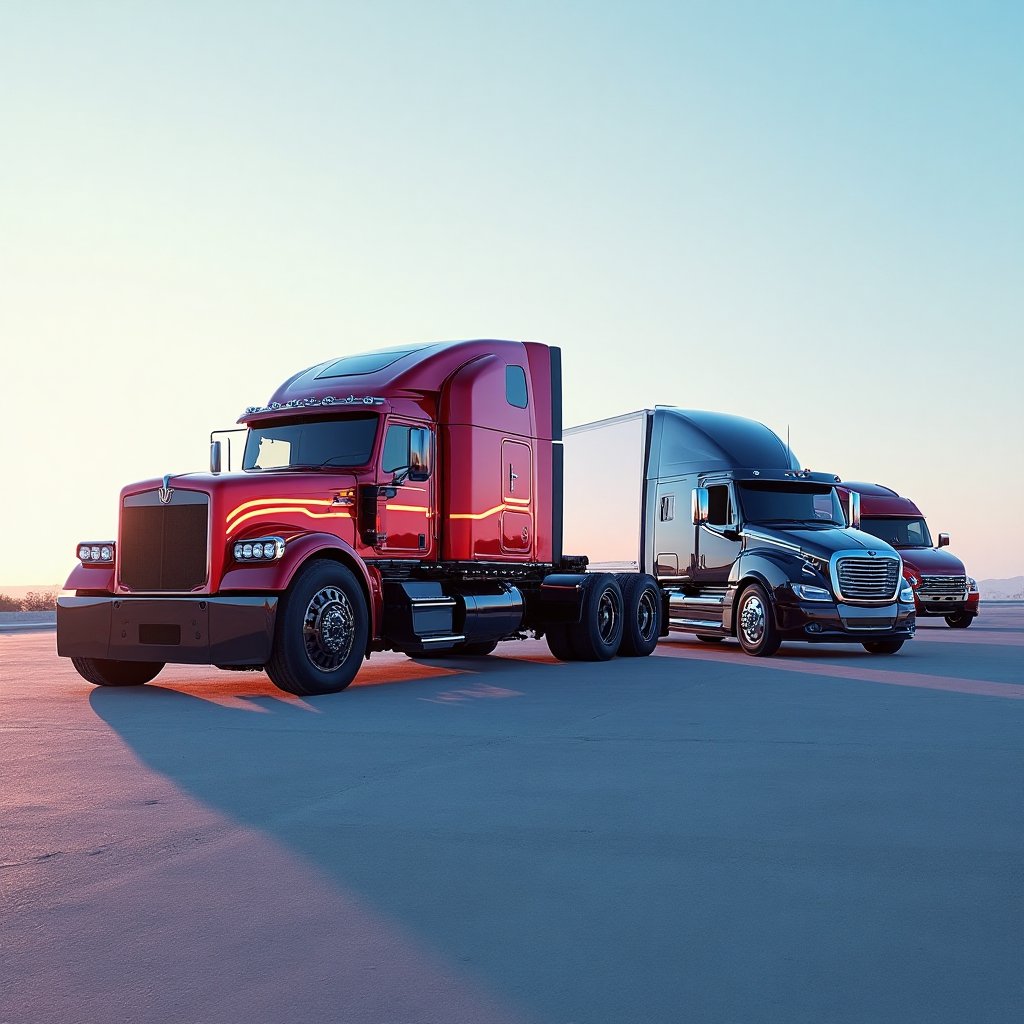
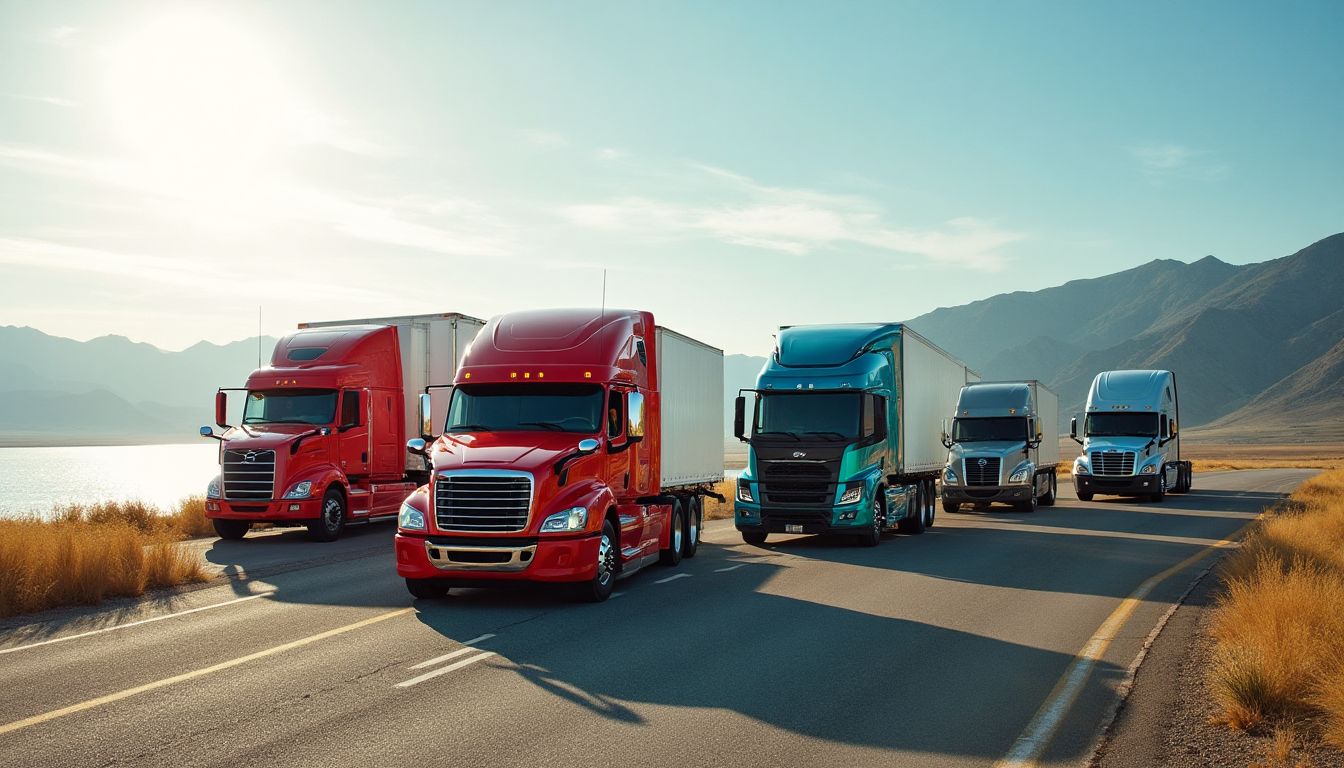
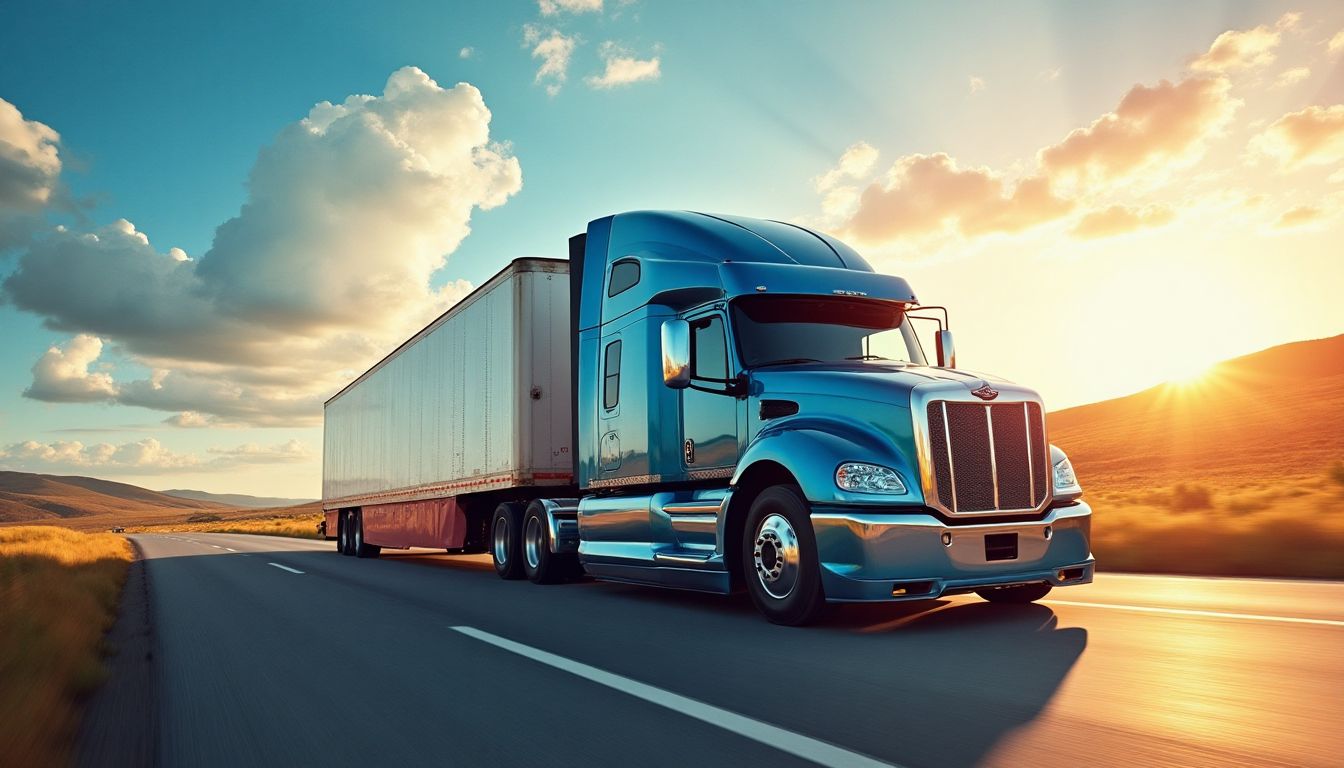
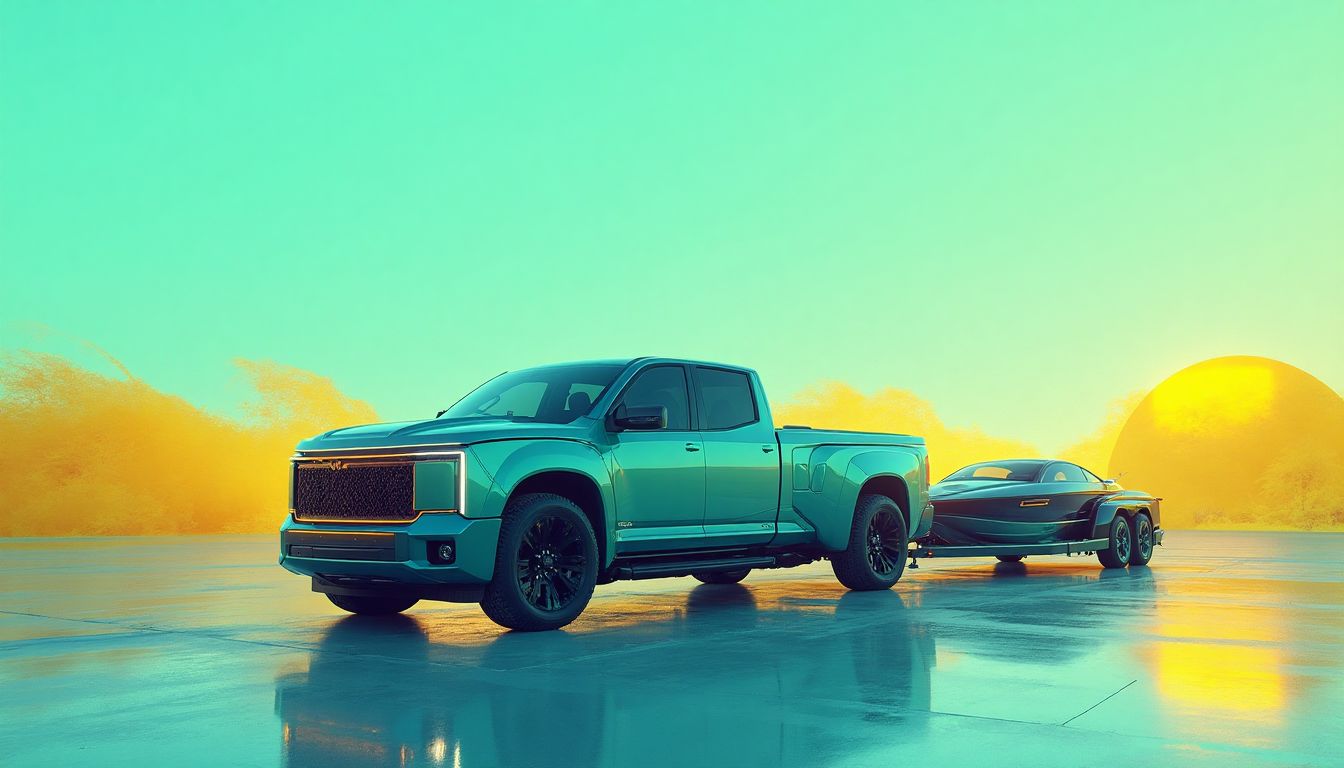
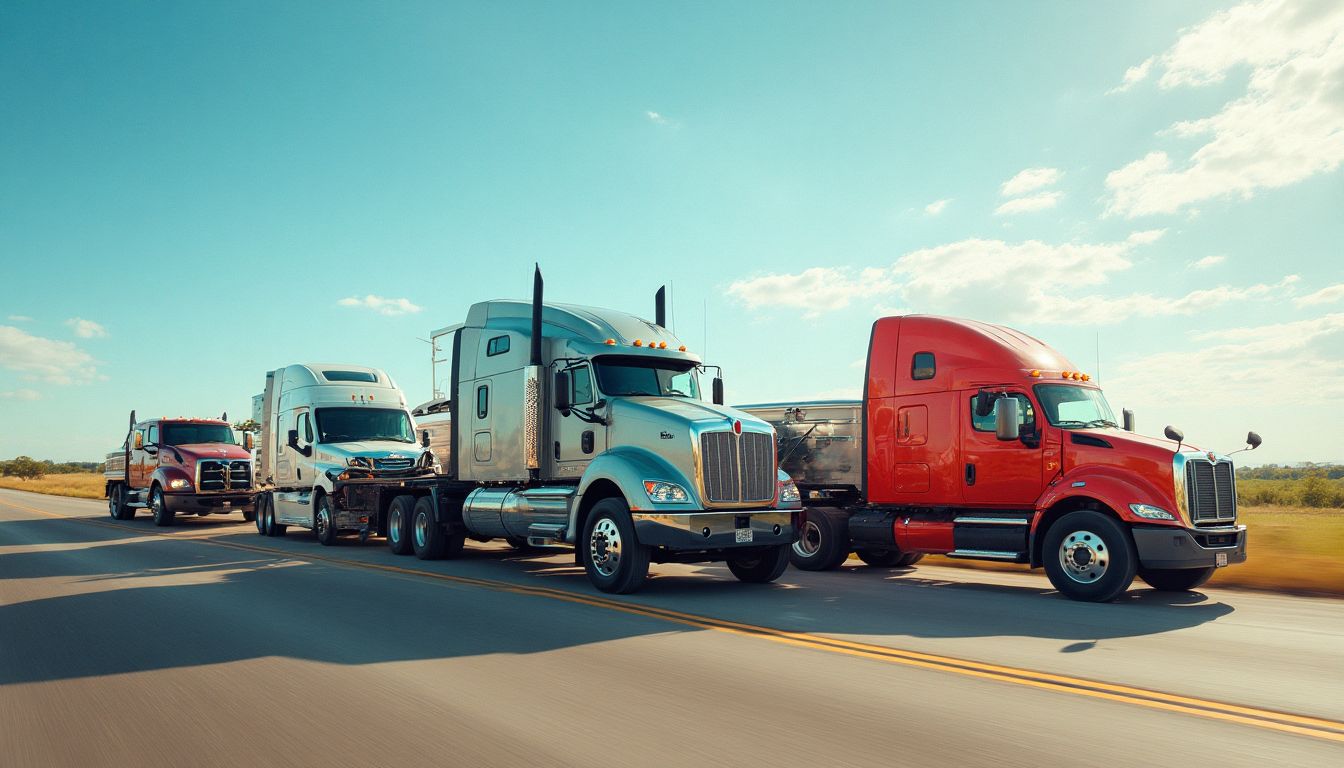

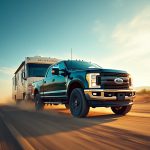




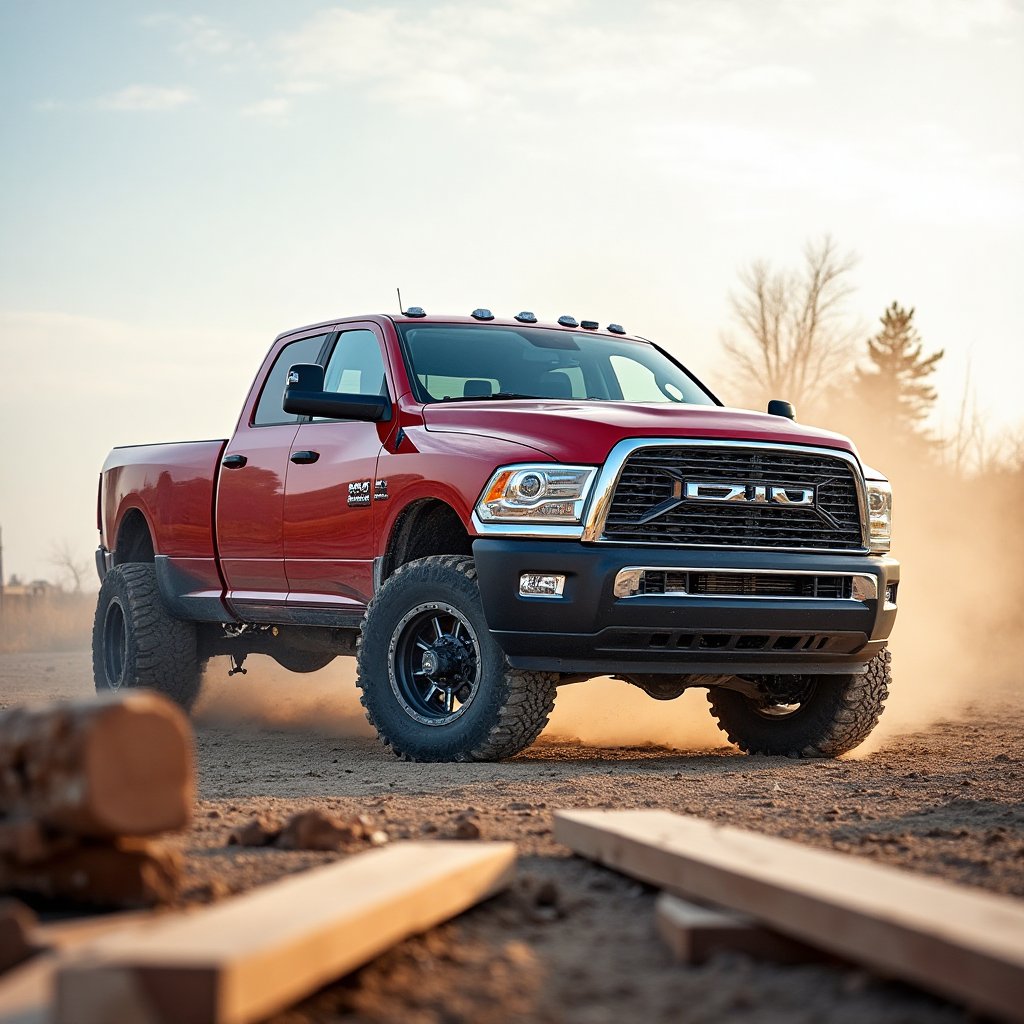
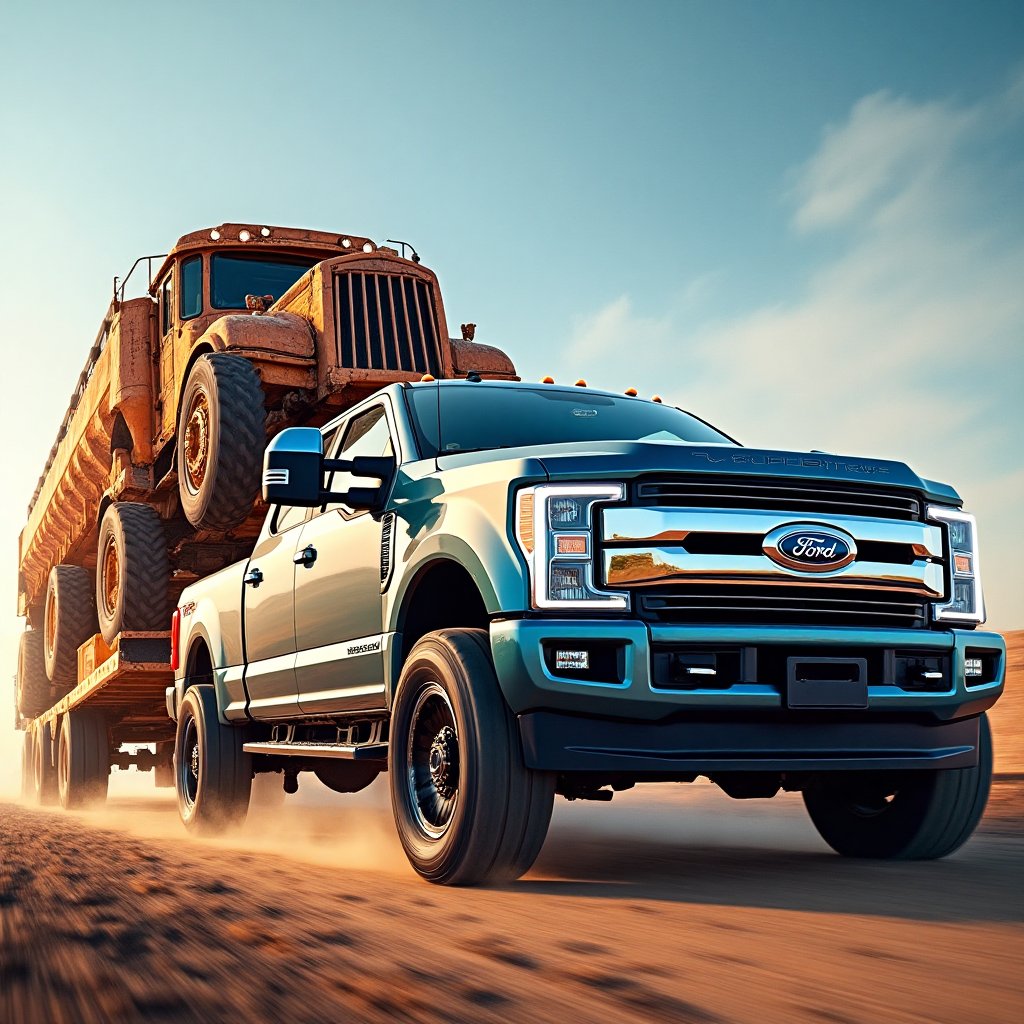
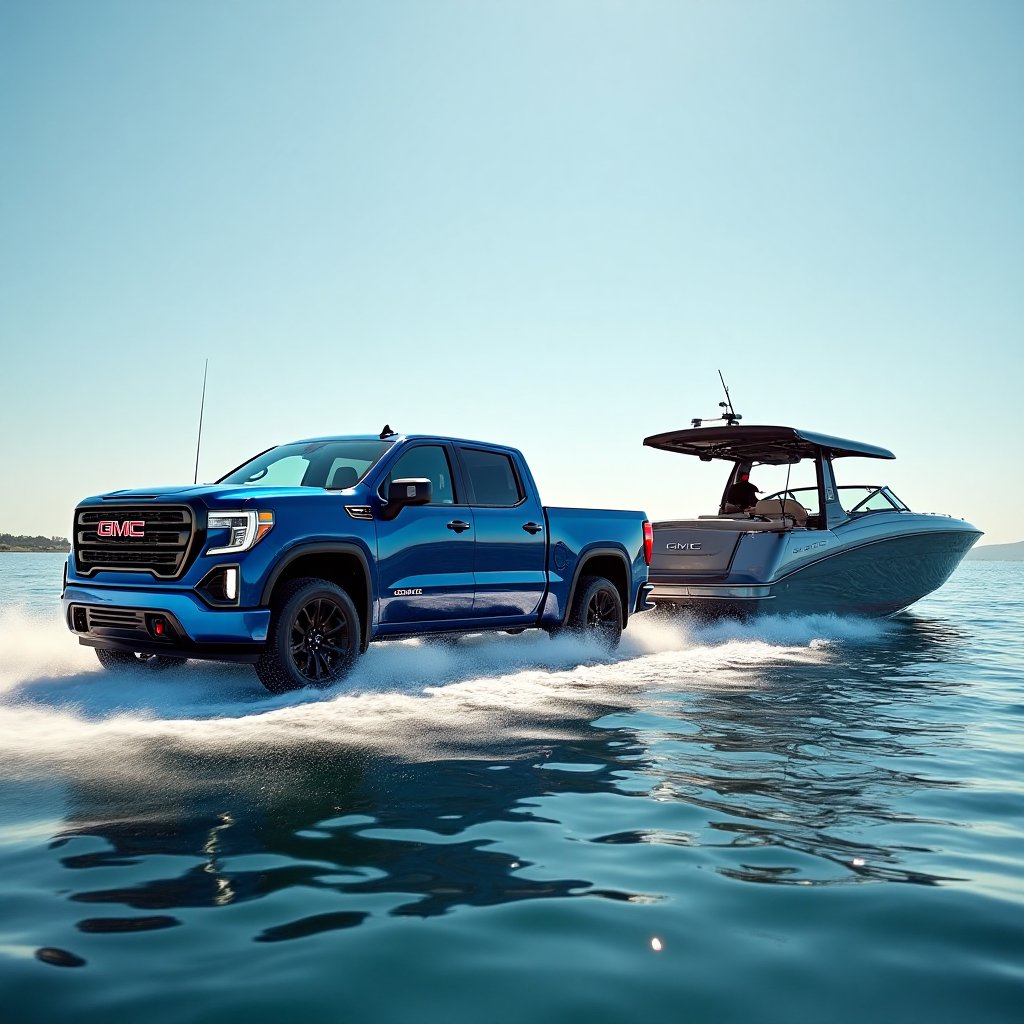















Post Comment
You must be logged in to post a comment.